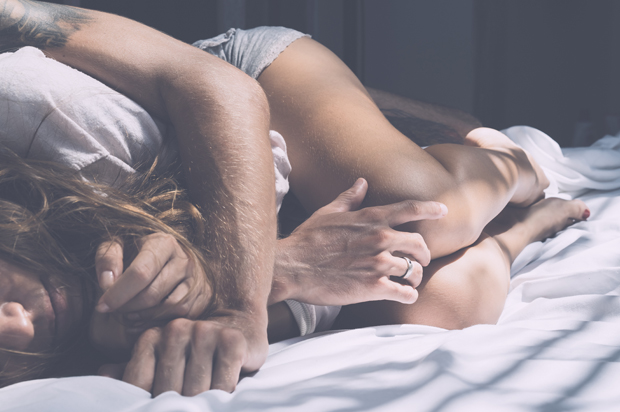In middle school, Sex Ed made doing it seem pretty simple — almost like a mathematical equation: P + V = baby and/or an STD. The curriculum warned against the dangers of unprotected sex with cringe-inducing photos of unpleasant illnesses, while also inducing fear of pregnancy. Like most, I learned sex is much more complex as I grew older. Factors I hadn’t been exposed to, or aware of, affected the way my peers and I experienced intimacy, from first kiss to going all the way. The equation is further complicated when alcohol and drug use become variables, a common trend in college that often extends to sexual practices in early adulthood — the drunken hook-ups that lead to embarrassment and hangovers, with clothes thrown to the floor, sloppy foreplay, a mess in the morning.
In a new study published in the Archives of Sexual Behavior, researchers at NYU investigated the way sex changes when a person is drunk, or high on marijuana. The study found the two substances affect sexual experience in different ways, and found associated levels of shame for each.
The investigation focused on a small group of participants — twelve heterosexual men and twelve heterosexual women — in order to gain as much intimate insight as possible. Researchers found both alcohol and weed increase a person’s perceived level of attraction, which creates an inflated sense of confidence.
“When I’m drunk, I’m drunk, so I’m like, ‘I’m hot.’ Then with weed, I usually feel more sexy … and happy. You usually feel a little sexier, a little bit more turned on and ready to have sex, instead of being self-conscious,” reported one participant.
Alcohol was associated with greater feelings of grandiosity, as well as regret. Participants reported feeling less inhibited while drunk — story of many a Saturday night in college — but also confessed to feelings of regret as regards partner selection. The study found participants are more likely to choose atypical partners when drunk, or under the influence of “beer goggles,” that leads to awkward mornings and misplaced memories of what occurred.
Smoking marijuana, on the other hand, made participants more wary of who they were around. The researchers attribute this to the stigma that still lingers when it comes to smoking weed. Although many states are now exploring the process of legalization, people still tend to get high in close-knit circles as opposed to an over-stuffed bar filled with shot takers.
“When I drink, I don’t mind being in a crowd of people,” said one participant. “There are times I’ll be high, and I’ll go to a party, and I’ll pick this guy or this girl. But when I’m drunk, I’m just going to mingle with everybody.”
The taboo surrounding smoking weed also increases intimacy between partners. Participants reported suggesting going back to someone’s place to get high is a useful transition before engaging in more intimate activities. The shared experience results in a heightened sense of excitement, the thrill of sharing a secret that involves breaking the rules.
Being high also alters the experience of sex itself. Aside from skewed perceptions of time (participants reported warped senses of temporality in which fifteen minutes felt like an hour), sensitivity was reportedly heightened, whereas drunkenness tends to desensitize. Many participants said that climax is intensified while high, and that they’re more likely to want to stick around to cuddle after. This report has interesting implications on how marijuana affects levels of oxytocin (a hormone associated with bonding) during and post-coitus.
Levels of shame were also reported following sex, especially when drunk. Both men and women reported feelings of regret following sex with someone they probably wouldn’t select if not under the influence of alcohol. Participants suggested alcohol leads to hook ups with people they don’t necessarily find attractive, while being high accentuates a partner’s degree of attractiveness.
An interesting facet of the study is that degrees of shame exist despite the presence of mind-altering substances that commonly reduce inhibitions. This suggests a deeply-embedded propensity in our culture to view sex as regrettable in many cases. For as saturated in sex as our society is, it’s surprising these feelings still linger. Are we so irresponsible as a culture that we dismiss the possible morning-after guilt for a few minutes of mind-altered intimacy? Possibly. Do we not realize the risks involved with drunken hook-ups? Of course we do. The problem is that alcohol and drug use are more socially acceptable than teaching people healthy relationship practices are.
Sex education glosses over the physical process and possible medical complications of sex often without acknowledging more complicated emotional factors that contribute to sexual attraction. As a result, alcohol and drug use serve as convenient and fun social lubricants that facilitate sexual encounters with minimal awkwardness during the exchange. We’re not taught how to deal with feelings, but bombarded with messages that support numbing them through drugs and alcohol. What’s left are feelings of confusion — and possibly regret — regardless of whether we were drunk or high. We fumble for both our feelings and our keys the next day, as we stumble mindlessly toward the next encounter.


